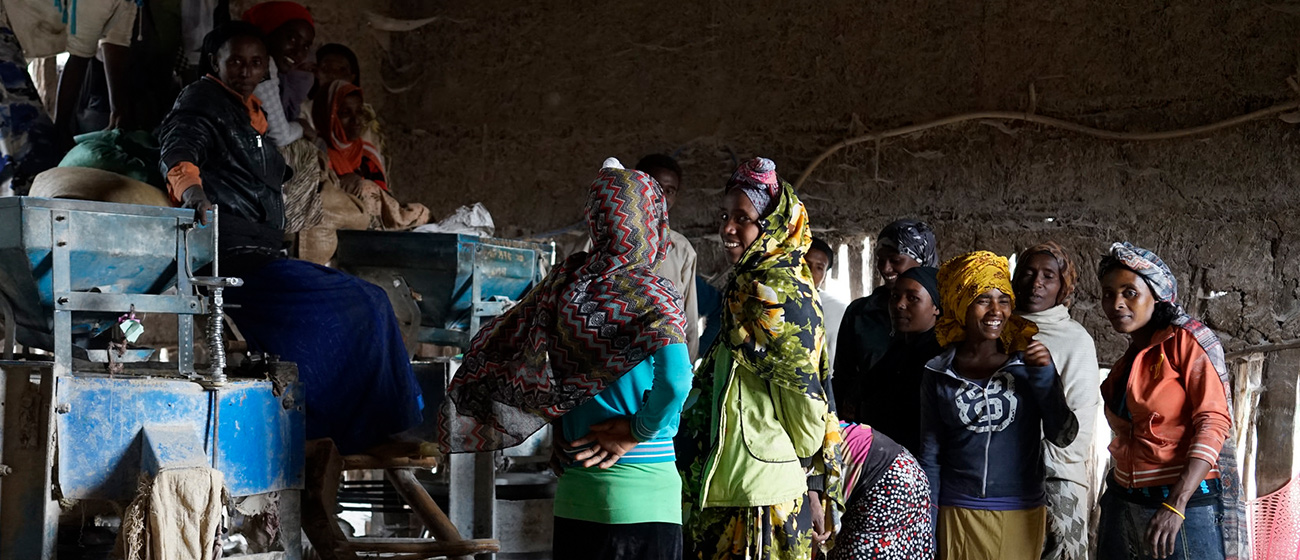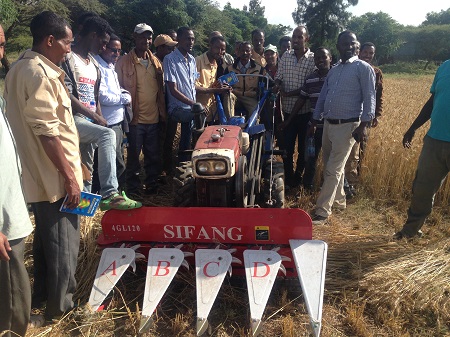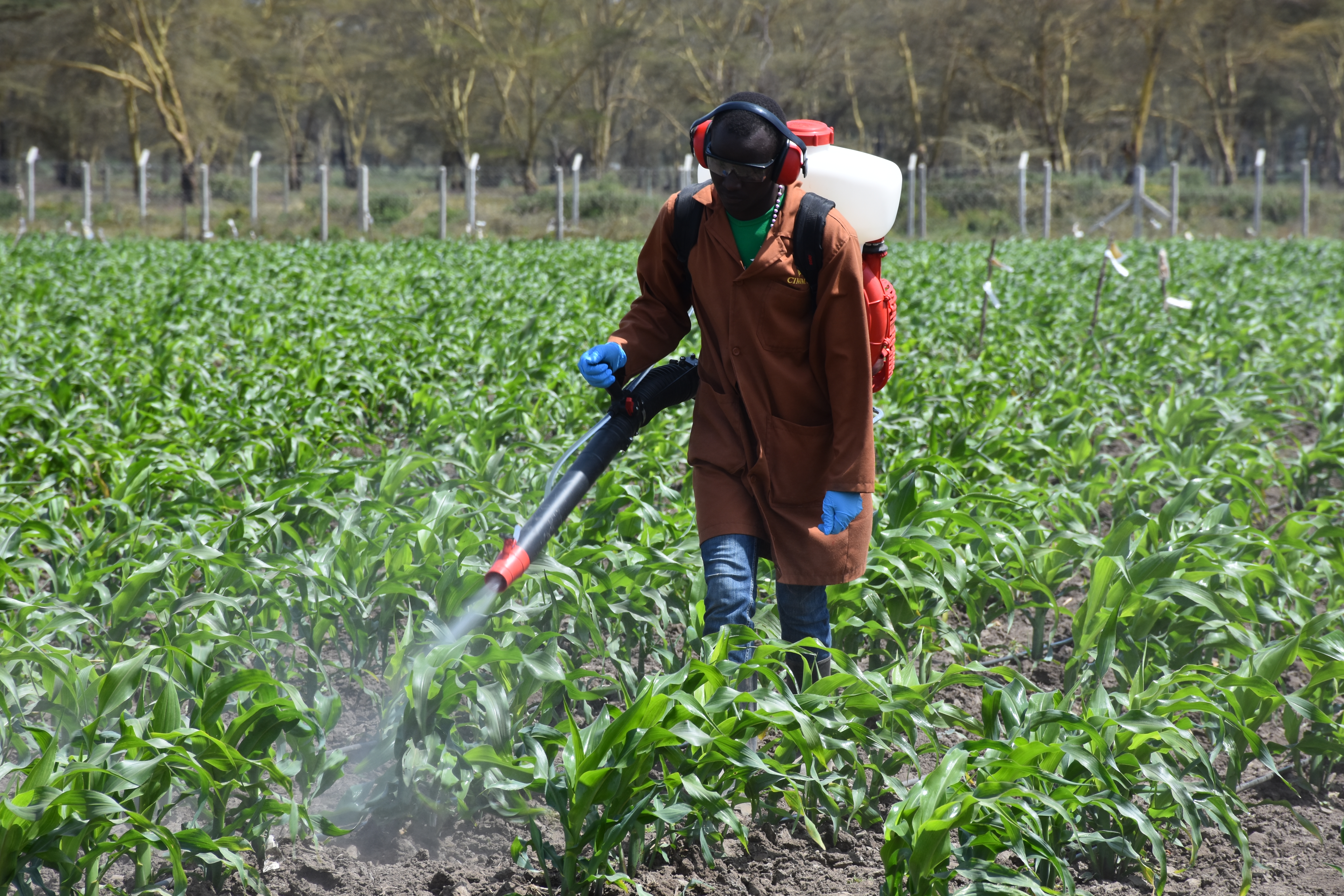Ethiopia
For more information, contact CIMMYT’s Ethiopia office.
How collaboration can help grow and transform agriculture in Africa
 Nutrition, health and food security
Nutrition, health and food security
Money alone can’t solve Africa’s agricultural problems. International collaboration is key.
Farmers in Ethiopia willing to pay more for quality protein maize
 Nutrition, health and food security
Nutrition, health and food security
In Ethiopia, 44 percent of children under the age of five experience impaired growth due to poor nutrition. Quality protein maize helps combat stunting and boosts nutrition in children who survive on a maize-dominated diet.
End of eight-year project leaves farmers ready to tackle climate change in Africa
 Climate adaptation and mitigation
Climate adaptation and mitigation
After eight years the Sustainable Intensification of Maize-Legume Cropping Systems for Food Security in Eastern and Southern Africa (SIMLESA) project concludes this June.
Science can reverse “new normal” of climate change-related disasters
 Climate adaptation and mitigation
Climate adaptation and mitigation
Building small scale mechanization capacity of service providers in Ethiopia
 Capacity development
Capacity development
A CIMMYT project aims to increase soil fertility through direct row planting of major crops in Ethiopia, such as maize, wheat and teff.
CIMMYT promotes gender awareness in agriculture research and development in Ethiopia
 Capacity development
Capacity development
Gender awareness and gender-sensitive approaches are slowly spreading into agricultural research, extension, and policy in Ethiopia, according to industry experts.
Emergency seed fuels quick farm recovery in drought-affected Ethiopia
 Climate adaptation and mitigation
Climate adaptation and mitigation
In response to Ethiopia’s worst drought in 50 years and a critical shortage of seed in 2016, CIMMYT and partners delivered over 3,400 tons of high quality seed to farmers.
Women are the foundation for change in rural Ethiopia
 Gender equality, youth and social inclusion
Gender equality, youth and social inclusion
Community conversations, a human-centered approach, puts people in charge of their own development in maize-based communities in Ethiopia.
Ethiopian farmers profit from scaled-up, fast-track production of disease resistant wheat seed
 Capacity development
Capacity development
More than 75,000 small-scale wheat farmers in Ethiopia’s 4 major wheat-growing regions gain access to a vital asset—over 400 tons of seed of new, disease resistant wheat varieties.
Community-based approach to gender research has far-reaching impacts
 Gender equality, youth and social inclusion
Gender equality, youth and social inclusion
Borlaug Dialogue delegates widen net to curb threat from fall armyworm
 Nutrition, health and food security
Nutrition, health and food security
World Food Prize laureates have joined forces with an international alliance battling the fall armyworm, an aggressive pest indigenous to the Americas with a voracious appetite, and now widespread throughout Africa.
Smallholder farmers to gain from targeted CRISPR-Cas9 crop breeding
 Innovations
Innovations
Gene editing technology could revolutionize the way scientists breed high-yielding drought, disease and pest resistant, high quality plant seeds, greatly reducing the time it currently takes to develop new varieties
Project helps African farmers identify regional best practices
 Climate adaptation and mitigation
Climate adaptation and mitigation
Traditional farming systems in Africa must be updated for today’s climate and market challenges, according to a new article from the University of Queensland.
New evidence shows forests help reduce malnutrition
 Nutrition, health and food security
Nutrition, health and food security
Living near forests can help locals increase their dietary diversity, and combat hidden hunger.
New online portal offers information to curb maize lethal necrosis in Africa
 Innovations
Innovations
The new maize lethal necrosis online portal provides up-to-date information and surveillance tools to help researchers control and stop the spread of the deadly disease.





